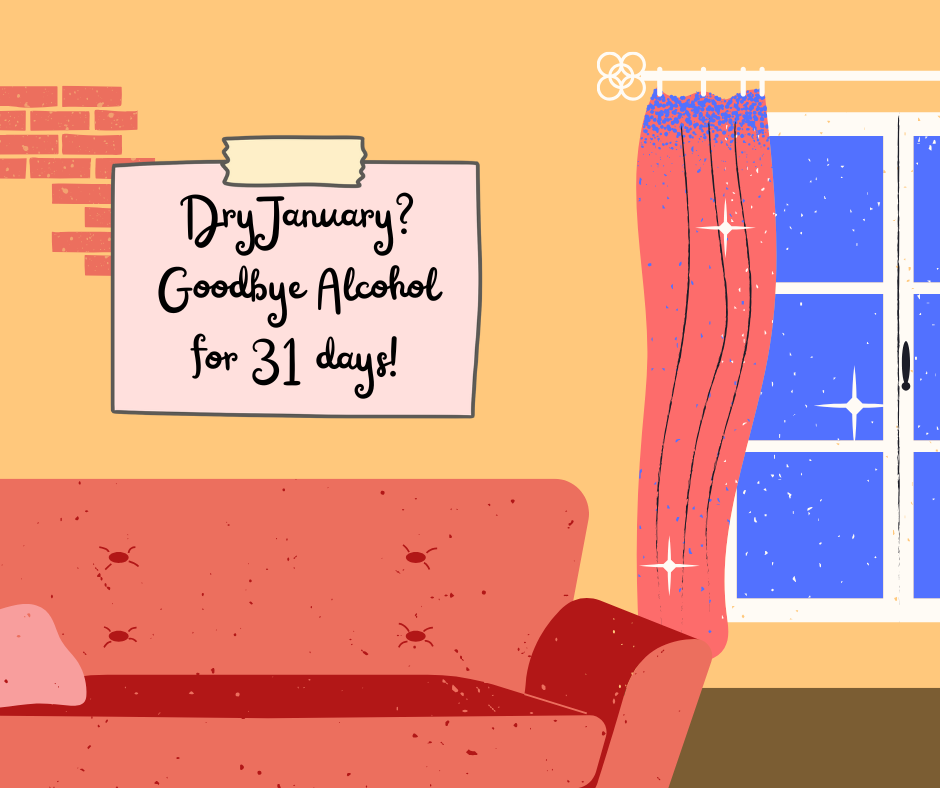Dry January: Three Tips for a Successful Experience
- Jimi Byrnes
- Dec 28, 2024
- 3 min read
Updated: Dec 29, 2024

January marks the beginning of a new year, inspiring individuals to set resolutions for improved health and well-being. Dry January is one way to improve health by voluntarily taking a break from alcohol during the entire month of January.
Surprisingly, many people may not know or realize what acceptable alcohol consumption looks like. Knowing the various definitions of alcohol use can help a person take stock of their alcohol use, evaluate their relationship with alcohol, and then decide to make changes as desired.
Drinking in Moderation: 1 drink or less per day for women and 2 drinks or less per day for men (age 21 and older)
Standard Drink Size:
12 ounces of beer, 5% alcohol
5 ounces of wine, 12% alcohol
1.5 ounces of distilled spirits, 40% alcohol
Heavy Drinking: 8 drinks or more per week for women and 15 drinks or more per week for men
Binge Drinking: 4 drinks or more in one occasion for women and 5 drinks or more in one occasion for men
Disordered Drinking occurs when a person has a relationship with alcohol that they do not like or the use of alcohol causes distress in one's personal, social, or occupational life.
Unhealthy or disordered drinking habits include a wide range of feelings and behaviors. Disordered drinking occurs when a person has a relationship with alcohol that they do not like or the use of alcohol causes distress or problems in one's personal, social, or occupational life. Unhealthy drinking behaviors include hiding alcohol, lying about the amount of alcohol one has consumed, drinking despite negative consequences, inability to limit alcohol consumption, or the presence of withdrawal symptoms when alcohol is abstained from. Over time, unhealthy and disordered drinking can lead to serious problems, including a diagnosis of Alcohol Use Disorder.
Tips for a Successful Dry January Experience:
Reasons for sobriety vary from person to person but usually involve a desire for improved health. However, this task can be easier said than done, especially when alcohol becomes a regular or even an everyday part of life. Here are three tips to help make Dry January successful in 2025!
1. Communicate your Intentions: Help friends and family support you by informing them of your decision to participate in Dry January. You do not owe anyone an explanation as to your reasons for choosing sobriety. Clearly communicate your expectations to avoid any awkward situations. If someone disregards your boundaries, gently remind them of your decision. Surround yourself with supportive individuals who understand and respect your choice. If someone repeatedly pressures you or disrespects your boundaries, it may be time to re-evaluate your relationship with that person.
2. Plan Distractions and Alternatives to Drinking: One of the biggest reasons people fail at sobriety is they do not anticipate how difficult it can be to abstain from alcohol, especially when alcohol is part of a routine or lifestyle. Identifying triggers and having a plan in place to combat urges ahead of time can decrease feelings of distress and frustration. Replace drinking routines with alcohol-free alternatives like herbal teas, adaptogen drinks, liver detoxes, or with alternative relaxation techniques such as walking or taking an Empson salt bath. Have positive affirmations such as “I’ve done difficult things before and I can do it again” in mind to reinforce your commitment during challenging moments.
3. Find Meaning and Purpose to Enhance Motivation: Finding meaning and purpose can turn a difficult situation into a motivational opportunity. One can find many reasons to engage in a month of sobriety, the most obvious reason being improved health. Frequently reminding yourself of other benefits to sobriety such as improved finances, better sleep, more energy, weight loss, enhanced work performance, decreased anxiety and depression, improved relationships, spiritual growth, and a decrease in sexual side effects can help you stay focused and motivated throughout Dry January.
By incorporating these tips into your Dry January journey, you can better navigate challenges and stay focused on your goals. Setting realistic expectations and having a supportive network can make achieving your sobriety goals more manageable. If you need additional support in achieving sobriety or improving overall health and well-being, Healing in the Boro is here to support you along the way. Here is to a happier and healthier you!
Disclaimer: If you believe you have an Alcohol Use Disorder or Addiction to Alcohol, it can be dangerous to stop drinking abruptly. Symptoms can include hallucinations, tremors, seizures, and even death. A detox plan should be put in place by a qualified professional prior to decreasing or stopping alcohol use. For more information, resources are available at SAMHSA.gov and aa.org.




Comments